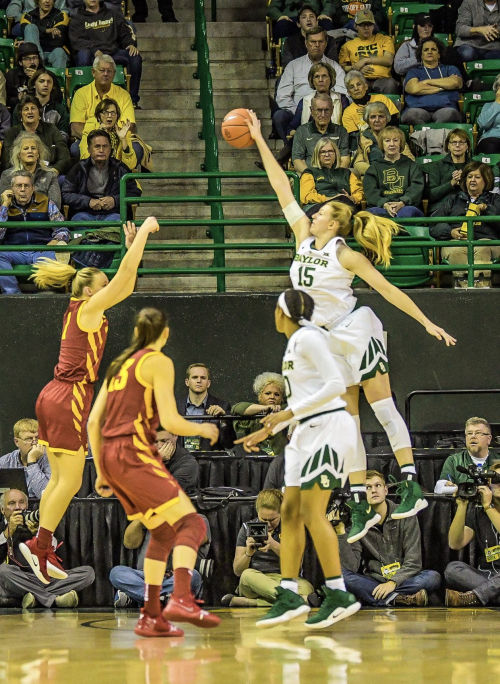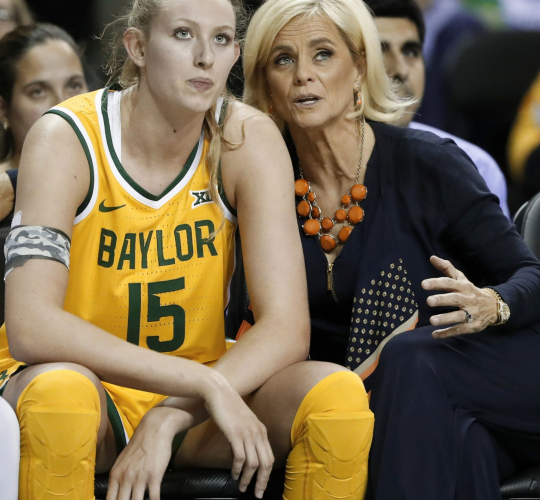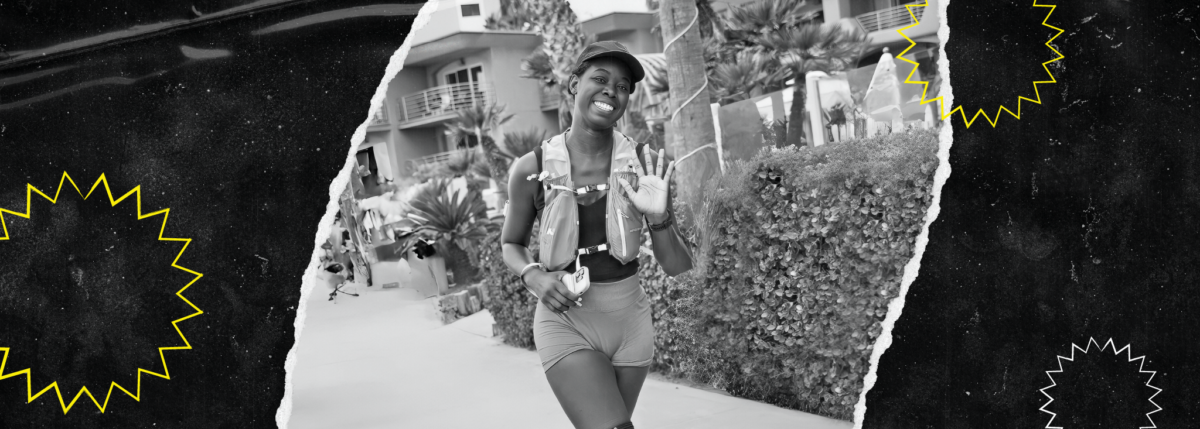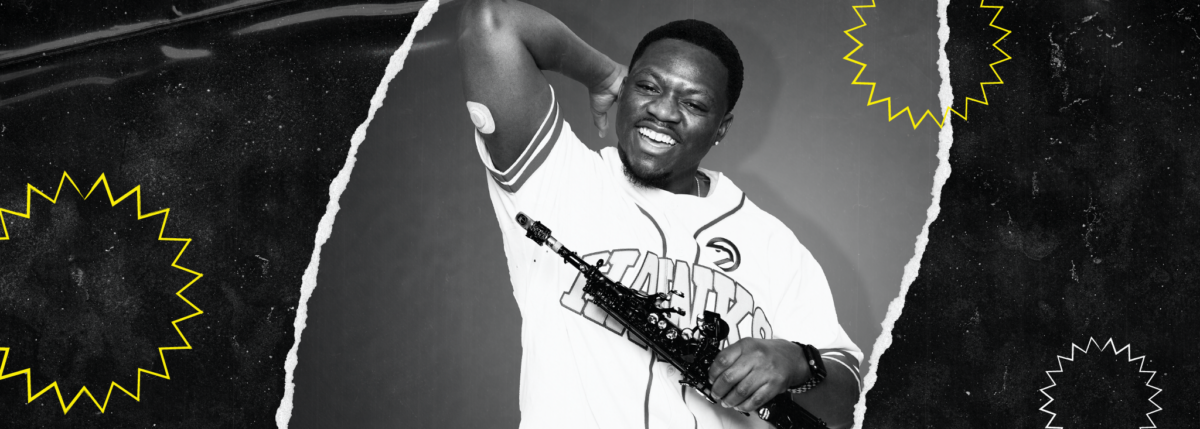Lauren Cox: The First Player with Type 1 Diabetes in the WNBA
Written by: Lala Jackson
4 minute read
June 18, 2020
 On April 7, 2019, Lauren Cox was playing in the NCAA College Basketball Championship game with her team Baylor University, against Notre Dame. She wore sports tape around her upper arm to keep her continuous glucose monitor (CGM) in place as she played. During the game, footage was shown explaining Lauren’s type 1 diabetes, her insulin pump and how her team and Coach Kim Mulkey had been her constant supporters. In the second half of the game, Lauren went down with an intense MCL sprain.
On April 7, 2019, Lauren Cox was playing in the NCAA College Basketball Championship game with her team Baylor University, against Notre Dame. She wore sports tape around her upper arm to keep her continuous glucose monitor (CGM) in place as she played. During the game, footage was shown explaining Lauren’s type 1 diabetes, her insulin pump and how her team and Coach Kim Mulkey had been her constant supporters. In the second half of the game, Lauren went down with an intense MCL sprain.
What followed is what so many people impacted by type 1 diabetes will recognize. Despite a major health hurdle—no one could keep Lauren down. Even with her knee wrapped in bandages, in massive pain and on crutches, Lauren joined every team huddle. She gave helpful feedback to her teammates. She showed up. She could not be kept down. Baylor won that game, becoming the 2019 NCAA Basketball Champion.
That is the indomitable spirit, combined with her tremendous skill, that led Lauren Cox to be drafted third overall in the 2020 WNBA draft, joining the Indiana Fever as the first ever professional women’s basketball player with type 1 diabetes. It is a massive deal, but it surprises few in the type 1 diabetes (T1D) community. We know that indomitable spirit well. It is the resilience we have all gained through the challenge of diabetes.
The impact of Type 1 diabetes on basketball
Lauren is now 22 years old. She started playing basketball when she was 5 and was diagnosed with type 1 diabetes when she was 7. At the time, no one else in her family had T1D. She experienced the classic symptoms of drinking a lot of water and going to the bathroom a lot. When I spoke with Lauren, she also explained “I was on the track team, and I went from winning every race I ran to all-of-a-sudden placing last.”
Of Lauren’s three sisters, her sister Whitney has since been diagnosed with T1D as well. “She and my parents were at one of my Baylor games and Whitney had to get up to go to the bathroom six or seven times, then stop another few times on the drive home. We were lucky that my parents knew what signs to look out for because of me, so they were able to get her checked out quickly.” Lauren and Whitney support each other by normalizing each other’s experience. “We’ll be driving to the gym and she’ll ask me how many carbs I counted for breakfast. I’ve been doing this for 15 years, her—not as long. So it’s nice to be able to help.”
For Lauren and Whitney, their parents have been a major support. “Growing up playing sports, we were always waking up in the middle of the night to check my blood sugar levels. We learned that two hours after a workout I was going to drop. If I worked out, then had dinner, I learned to change how much insulin I gave myself. The key was learning to go through the trial and error. For parents, you have to be willing and open to learn what works for your child.”
The impact of basketball on Type 1 diabetes
 I asked Lauren if there was anything basketball has taught her about diabetes. “It taught me to never settle,” she said. “My freshman year when I got to Baylor I had really high expectations for myself. When I didn’t meet those expectations, I was really down and got in my head. It was mental. Same with diabetes, there are those days when my numbers just will not come down. I’m doing everything I can and I’m still high. I’ve learned I can’t let that get to my head, I can’t get down on myself. If I push through and don’t beat myself up, I’ll figure things out.”
I asked Lauren if there was anything basketball has taught her about diabetes. “It taught me to never settle,” she said. “My freshman year when I got to Baylor I had really high expectations for myself. When I didn’t meet those expectations, I was really down and got in my head. It was mental. Same with diabetes, there are those days when my numbers just will not come down. I’m doing everything I can and I’m still high. I’ve learned I can’t let that get to my head, I can’t get down on myself. If I push through and don’t beat myself up, I’ll figure things out.”
At Baylor, Lauren’s Coach Kim Mulkey ended up becoming an integral support figure, not only on the court but with Lauren’s diabetes. “She took the time to learn everything she could, not to make me feel different, but to support me.” For other coaches of people with type 1, Lauren recommends that they “learn as much as they can. Most people don’t know a lot about type 1, but you don’t need to do an overwhelming amount of research. Inform yourself, then talk to your athlete. Every person with diabetes needs different support. Learn the basics to get them what they need—especially the typical symptoms of low and high blood sugars—but ask questions too.” Lauren’s Baylor teammates were also incredibly supportive, getting to the point where they could recognize if she wasn’t being herself and her blood sugar may be low.
Lauren has also been an active advocate in the type 1 diabetes space, arranging charity basketball games and attending community events. As a JDRF ambassador, she attended the 2019 Children’s Congress in Washington, D.C. “Diabetes is a huge part of my life and it’s not going away anytime soon. I can’t just forget about it and push it to the side, so it’s important to me to show up for others facing this too.”
The road to the WNBA
The day Lauren was drafted, her article “For anyone who’s been through it” was published by The Players’ Tribune. In it, she wrote about the resilience type 1 diabetes taught her, but in the responses she’s heard since, she found the article resonated with many. “I think parents in particular look at my experience as one they can show their kids—they may not have diabetes, but they can see an example of how to get through adversity… my parents raised us to try to be leaders and to be vocal, but diabetes taught me that even when I’m at my lowest point, there’s always something I can do.”
When asked how it feels to be drafted to the WNBA, particularly as the first professional women’s player with type 1, she said “it feels good. This was the ultimate goal when I started playing basketball. I dreamed of playing as a professional. I want kids with type 1 to know that you can reach the highest level of what you’re doing.” When asked if she had any fears about playing professionally with diabetes, she said, “not really. I played four years of college ball with type 1. That season is almost two times longer than the WNBA season. I know what I’m supposed to do.”
Typically, WNBA games would have started in mid-May, but the organization recently announced games will start in late July in a special season that will be played exclusively at IMG Academy in Bradenton, Florida. During quarantine, Lauren has learned how to make jambalaya and she and her family have been keeping themselves occupied with family trick shot challenges, from which Lauren is most proud of making a basketball shot after hitting the ball with a baseball bat.
To her future WNBA competitors, she wants them to know, “they’re gonna face a competitor. I hate to lose. I’m gonna do whatever it takes for my team to win.”

Author
Lala Jackson
Lala is a communications strategist who has lived with type 1 diabetes since 1997. She worked across med-tech, business incubation, library tech and wellness before landing in the type 1 diabetes (T1D) non-profit space in 2016. A bit of a nomad, she grew up primarily bouncing between Hawaii and Washington state and graduated from the University of Miami. You can usually find her reading, preferably on a beach.
Related Resources

Danica Collins not only prepared for one of the most challenging physical events of her...
Read more

Beyond Type 1 is spotlighting inspiring athletes with type 1 diabetes as they prepare for...
Read more

On November 3, 2024, Taylor Rindfleisch of Chicago laced up her running shoes for the...
Read more

